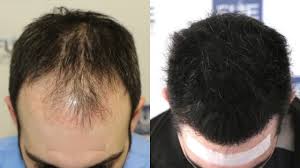Hair transplantation can be an effective and permanent solution for hair loss in certain cases. The effectiveness of the treatment depends on various factors, including the individual's specific condition, the skill of the surgeon, and the chosen hair transplant method. The two primary types of hair transplantation procedures are Follicular Unit Transplantation (FUT) and Follicular Unit Extraction (FUE).
Follicular Unit Transplantation (FUT): In FUT, a strip of skin containing hair follicles is removed from the donor area (usually the back or sides of the scalp), and the follicles are then transplanted into the balding or thinning areas. This method leaves a linear scar but can be effective in providing a significant amount of hair in a single session.
Follicular Unit Extraction (FUE): FUE involves extracting individual follicular units directly from the donor area and implanting them into the recipient area. FUE hair restoration in Peshawar usually results in smaller, less noticeable scars and has a shorter recovery time compared to FUT.
Factors influencing the effectiveness of hair transplantation:
Individual factors: The success of the procedure can vary from person to person based on factors such as the extent of hair loss, the quality of donor hair, and the individual's overall health.
Skill of the surgeon: The experience and skill of the surgeon performing the transplant play a crucial role. A skilled surgeon will ensure proper graft placement, natural-looking results, and minimal scarring.
Transplant method: Both FUT and FUE can be effective, but the choice between them depends on individual circumstances. FUE is often preferred for its less invasive nature and quicker recovery.
Post-operative care: Following the surgeon's post-operative care instructions is essential for optimal results. This includes proper care of the transplanted area to promote healing and encourage the growth of new hair.
Expectations: Realistic expectations are crucial. While best hair transplantation in Islamabad can provide a significant improvement, it may not restore a full head of hair, especially if the individual has extensive hair loss.
It's important to note that hair transplantation does not prevent further natural hair loss, and additional sessions may be needed over time. Before deciding on a hair transplant, individuals should consult with a qualified and experienced surgeon to assess their specific situation and discuss potential outcomes and risks.

No comments:
Post a Comment